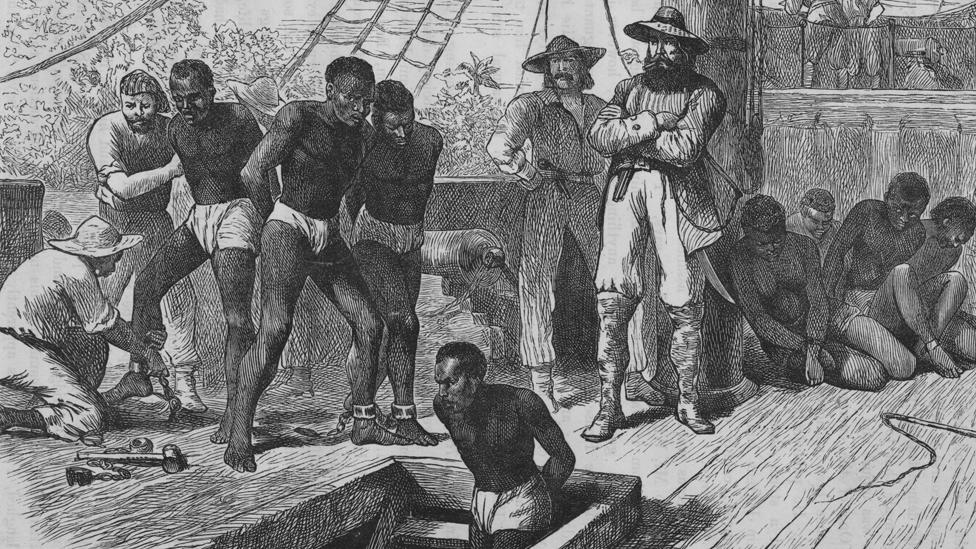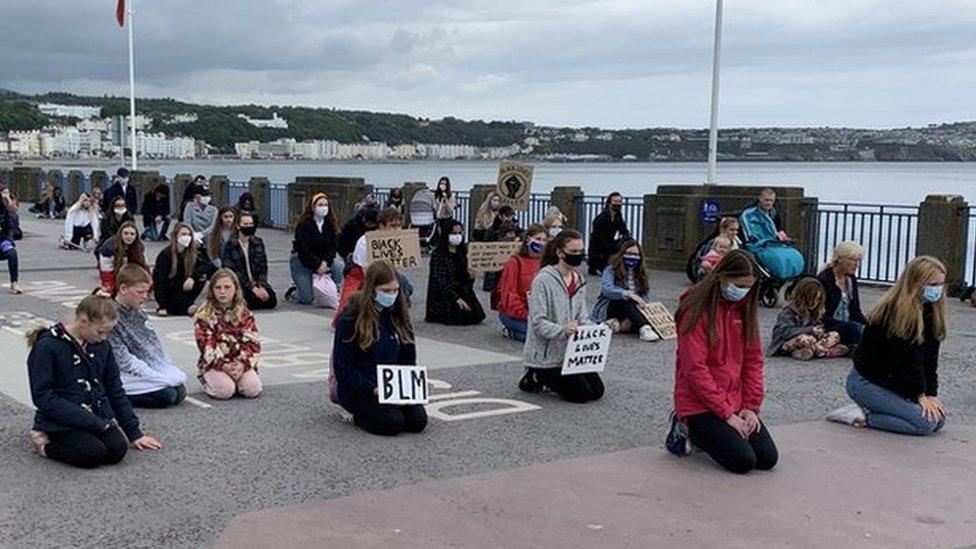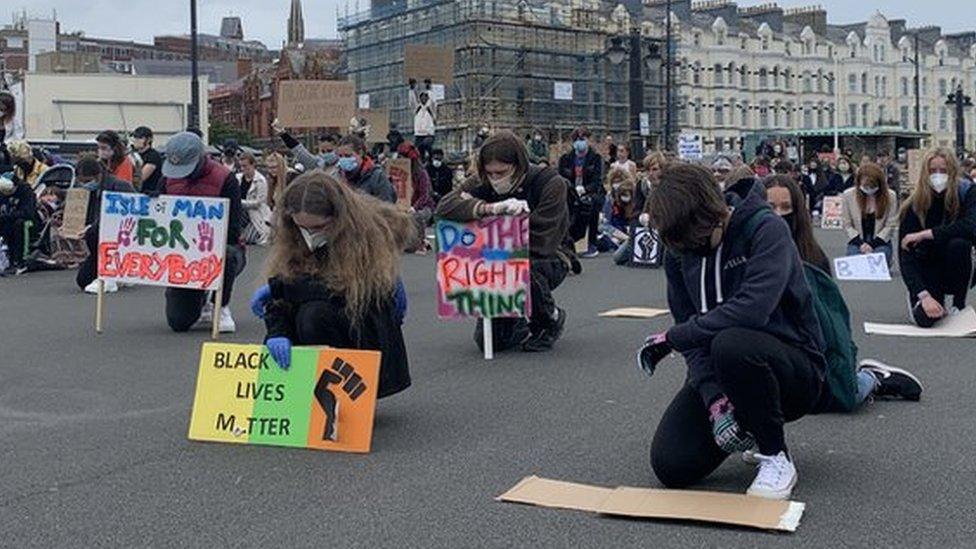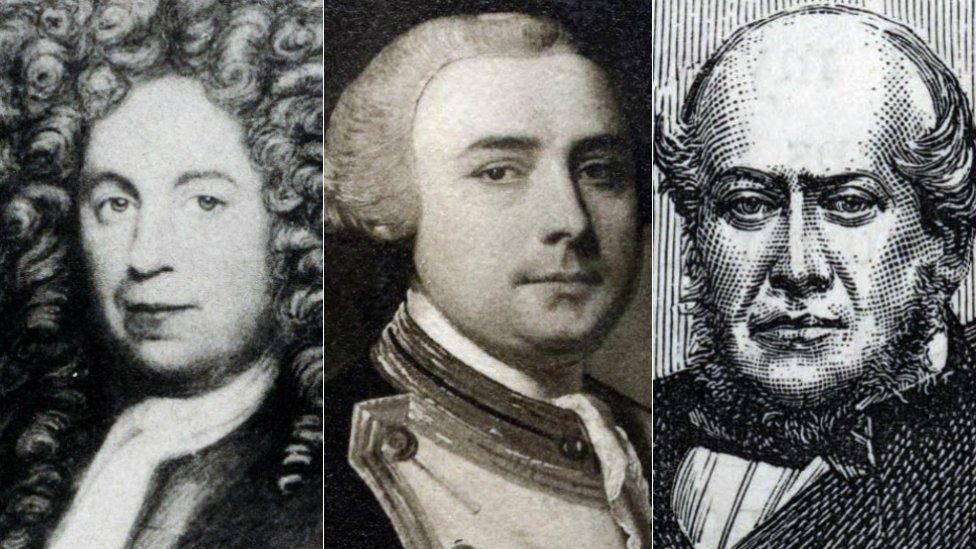Isle of Man schools must not 'shy away' from Manx slavery links
- Published

Ships from Liverpool bought goods from the island to trade for slaves in Africa
Isle of Man schools should not "shy away" from teaching the truth about the slave trade and the island's links to it, a campaign group has said.
The island played a key role in the trade during the 1700s and the Hardy Commission wants lessons on racism and inequality added to the curriculum.
Spokeswoman Ellen Wiltshire said current teaching was "very one-sided".
The government said individual schools could decide which aspects of Manx history are taught in lessons.
The Hardy Commission, which has been set up by volunteers to "challenge racism and the hateful ideologies it thrives upon by imploring our leaders to take action", has called for the teaching of "Manx anti-racism education".
Ms Wiltshire said lessons should be used to "really talk about those people who were oppressed and who were treated in this absolutely horrible way, to really drive the point home that these were people".
She said slaves were "seen as less than people at the time" and the teaching of the subject should not "shy away" from that fact or "create a sense of guilt surrounding it".
"Remembering that this is how they were treated is the best way of turning the learning of our history into something positive."

Many young people joined the protest
Her comments come three days after more than 1,000 people, including hundreds of children, took part in a Black Lives Matter march in Douglas.
The march's organiser Benard Mensah said at the time that he hoped it would start more open discussions about race on the island.
A spokeswoman for the Department of Education, Sport and Culture said it was "up to individual schools to decide which aspects of the island's history are taught in lessons".
Customs records from between 1718 and 1764 show cheaper goods brought to the island by the Dutch East India Company were taken to Africa to trade for slaves by ships from Liverpool.
Manx seamen were also "seen to be good hands" and many crewed the vessels as sailors and captains, Manx National Heritage archivist Wendy Thirkettle said.
She said "very different levels" of society on the island were involved in trade, including merchants, investors and seaman.
The role of the island was significant in helping "to give Liverpool the ascendency over Bristol as a slaving port", she added.
- Published9 June 2020

- Published15 January 2020
